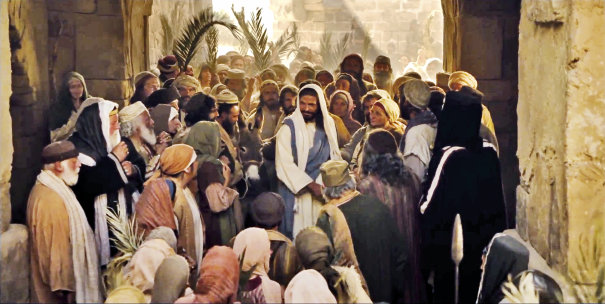
As a child, I grew up watching news footage of vast military parades put on by the Communist government in Red Square in Moscow. The regiments of soldiers, goose-stepping by along with large anti-ballistic missiles carried on large trucks always made me a little scared of the power of the Communists and, I believe, that was their intent. The leaders of the government would be standing up on balconies, as if placed on pedestals, watching with joy in their eyes as their troops marched past.
In the early 1990’s, after the fall of the Communist dictatorship in Romania, I traveled to that country to assist with starting up social service programs there. Invited in by the Evangelical Alliance of Romania, we worked with local seminaries to provide the much-needed skills to teach pastors and others, to best serve the people of their country. I heard countless stories about how, as children in school, they would be bussed to Bucharest and given signs to wave while standing in the square cheering for the dictator Nicolae Ceaușescu and his wife, Elana. Ceaușescu would give hours-long speeches and all those assembled in the square would be required to salute at the appropriate times or face severe punishment and perhaps death. Just as the vast military parades in Red Square came to an end so did the brutal dictatorship of Nicolae & Elana Ceaușescu.
Today we heard the story of another parade. This parade was not one of grandeur and excess; it was not a parade where people were forced to participate nor to acknowledge the vast power and might of the person leading the parade. But, this parade was as political as the parades in Red Square or the speeches from the balcony of party headquarters in Jerusalem. And, they were as carefully orchestrated.
This story relates one of the wildest and most politically explosive acts of Jesus’ ministry. This entrance into the holy city was a direct challenge not only to the religious establishment but the very heart of the Roman Empire. In the passages we read this morning from the Gospel of Mark, Jesus lampoons the political powers through a carefully planned, carnivalesque “military procession” into Jerusalem. And we also see that Jesus knew exactly what he was doing.
The parade forms up at the Mount of Olives, the traditional location from which tradition held the final battle for the liberation of Jerusalem would take place. He sends his disciples out for provisions, but not provisions of war, but a simple colt, not even a full grown donkey. Jesus is going to take possession of Jerusalem unarmed and riding on a colt.
When he enters the city, the people assembled react as if a great military leader has entered. The actions that they take were considered treasonous by the empire. They threw down their coats and waved palm branches. The praised Jesus and shouted “Hosanna” and “long live the king!” And Jesus rides through the crowd smiling and waving.
But Jesus is not entering this city to occupy it, nope, in fact, he turns imperial notions of domination right on their heads in what can only be described as a masterfully planned piece of political satire. In his “triumphal entry” Jesus lampoons those in power, the establishment, the empire and their pretensions of glory and domination and acts in the opposite way.
“Riding on the colt, his feet possibly dragging on the ground, Jesus comes not as one who lords his authority over others, but as one who humbly rejects domination. He comes not with pomp and wealth, but as one identified with the poor. He comes not as a mighty warrior, but as one who is vulnerable and refuses to rely on violence.” Charles L Campbell, Commentary on Mark, Feasting on the Word.
Jesus takes on the role of court jester, makes fun of those in power and the trappings of their office, and invites those assembled, and you and me, to live in an entirely different way. This carnivalesque atmosphere becomes a challenge to the social order of the day. Riding into the city this way was a subversive act on the part of Jesus that would set up the actions of the days that would follow.
By riding into the capital city on a colt, Jesus took a shot at the establishment and switched the focus from those in power to the least of these. Jesus taught us, by his humble action, that we are not to sit at the tables of the great hoping to eat the scraps that fall from it, we are to sit with the poor, the marginalized, the lowest of the low and we are to raise them up on high through the power of the love of God.
Those in power plotted against Jesus not because he was a blasphemer or had the wrong theology, those in power came after him, and eventually killed him because he was a direct threat to their power, position, and influence. Jesus pulled off their masks and revealed to the world how hypocritical it is to force people to believe a certain way when all that is required is to love God with all we have and to love and serve those around us.
This story is a reminder to us that we must continue to rip off the masks of hypocrisy and to serve the less fortunate, very often the ones used by both sides to get what they want. But it is also a reminder that we have to rip off our masks and take a stand and not just follow the crowd or what is popular at the moment but to follow Jesus and his way.
On that day, in the City of Jerusalem, Jesus ushered in a New World Order for us to follow. No more is it an order of domination and subjugation it is an order of love and service to all.
